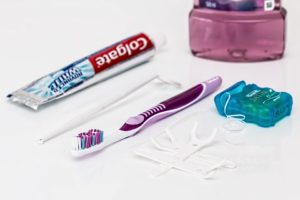60706 Dentist
 Is anxiety or nervousness preventing you from visiting our team? Dental treatments should not be a cause of stress. If you worry about pain, embarrassment, or loss or control during a dental examination, we want you to know two very important things: You are not alone and We can help.
Is anxiety or nervousness preventing you from visiting our team? Dental treatments should not be a cause of stress. If you worry about pain, embarrassment, or loss or control during a dental examination, we want you to know two very important things: You are not alone and We can help.
Dental Anxiety Is Common
Research has shown that most patients experience some degree of anxiety when visiting the dentist. Between 10 and 20% of the general population encounters such a high level of stress and nervousness that they ignore oral healthcare altogether. This can increase the risk of developing severe oral health complications, requiring additional care.
In many cases, dental anxiety has two main causes. First, patients may have had a negative experience in the past, leaving them apprehensive towards their next appointment. Second, is through influence. This is particularly true for children. Children learn through imitation and are influenced by their parents. If you dread going to the dentist, your child may pick up on the behavior and develop similar fears.
Our Team Can Help
The first action you can take is to let our team know about your feelings of nervousness and anxiety. We have a number of techniques to help you feel more comfortable and relaxed. Our compassionate team is always open to discussing your options with you.
We will consult you regarding what your visit will entail, and work together to find a comfortable pace at which you feel comfortable.
If nervousness, stress, fear, or anxiety have caused you to skip appointments or avoid dental care completely, please contact our team. Dentistry is constantly evolving by offering new technology and treatment methods with patient safety and comfort in mind. Talk to our team about your fears or concerns and allow us to work with you. Ignoring your oral health can have serious repercussions and lead to more necessary treatments.
Contact our team to schedule your visit today.
7615 W Montrose Ave
Norridge, IL 60706
(708) 453-0777




 Nearly everyone has at least one habit that they wish they could break. Did you know that some of them can affect your oral health? Here are a few common habits and tips for how to break them.
Nearly everyone has at least one habit that they wish they could break. Did you know that some of them can affect your oral health? Here are a few common habits and tips for how to break them. Did you know your oral health can impact your overall health? We’ve compiled a list of 5 tidbits about your teeth and oral health.
Did you know your oral health can impact your overall health? We’ve compiled a list of 5 tidbits about your teeth and oral health. Do you suffer from regular sensitivity? Teeth sensitivity is often misunderstood, but our dental team can help you find relief. We’re here to separate the fact from fiction in sensitivity.
Do you suffer from regular sensitivity? Teeth sensitivity is often misunderstood, but our dental team can help you find relief. We’re here to separate the fact from fiction in sensitivity.
 Wisdom teeth are the last new teeth that will enter your mouth. Most patients have some form of complications resulting from their wisdom teeth. Did you know that your wisdom teeth can impact your overall health? Here’s what you need to be aware of regarding your wisdom teeth.
Wisdom teeth are the last new teeth that will enter your mouth. Most patients have some form of complications resulting from their wisdom teeth. Did you know that your wisdom teeth can impact your overall health? Here’s what you need to be aware of regarding your wisdom teeth. Our dentist might suggest dental sealants for your child during a visit to our office. Sealants are a way to protect your teeth against decay. With any dental treatment, it helps to understand the procedure and how it can impact your child’s oral health.
Our dentist might suggest dental sealants for your child during a visit to our office. Sealants are a way to protect your teeth against decay. With any dental treatment, it helps to understand the procedure and how it can impact your child’s oral health. The food children eat affects their long term oral health. Some foods have nutrients teeth need. Others are full of acids and sugars that are harmful to teeth. With so many unhealthy food choices being marketed to children every day, it is vital that you take a stand. Offer fun, healthy snacks and model the better food choices you want your kids to make.
The food children eat affects their long term oral health. Some foods have nutrients teeth need. Others are full of acids and sugars that are harmful to teeth. With so many unhealthy food choices being marketed to children every day, it is vital that you take a stand. Offer fun, healthy snacks and model the better food choices you want your kids to make. Our convenient local dental office is featuring children’s dentistry services for families in our community. The American Dental Association recommends that all patients follow a routine of dental examinations at least every six months, or as directed by their dentist. This is particularly important for growing children.
Our convenient local dental office is featuring children’s dentistry services for families in our community. The American Dental Association recommends that all patients follow a routine of dental examinations at least every six months, or as directed by their dentist. This is particularly important for growing children. As a parent, the best way to help ensure your child has a lifetime of healthy teeth is to help them establish great dental hygiene habits as they grow.
As a parent, the best way to help ensure your child has a lifetime of healthy teeth is to help them establish great dental hygiene habits as they grow.